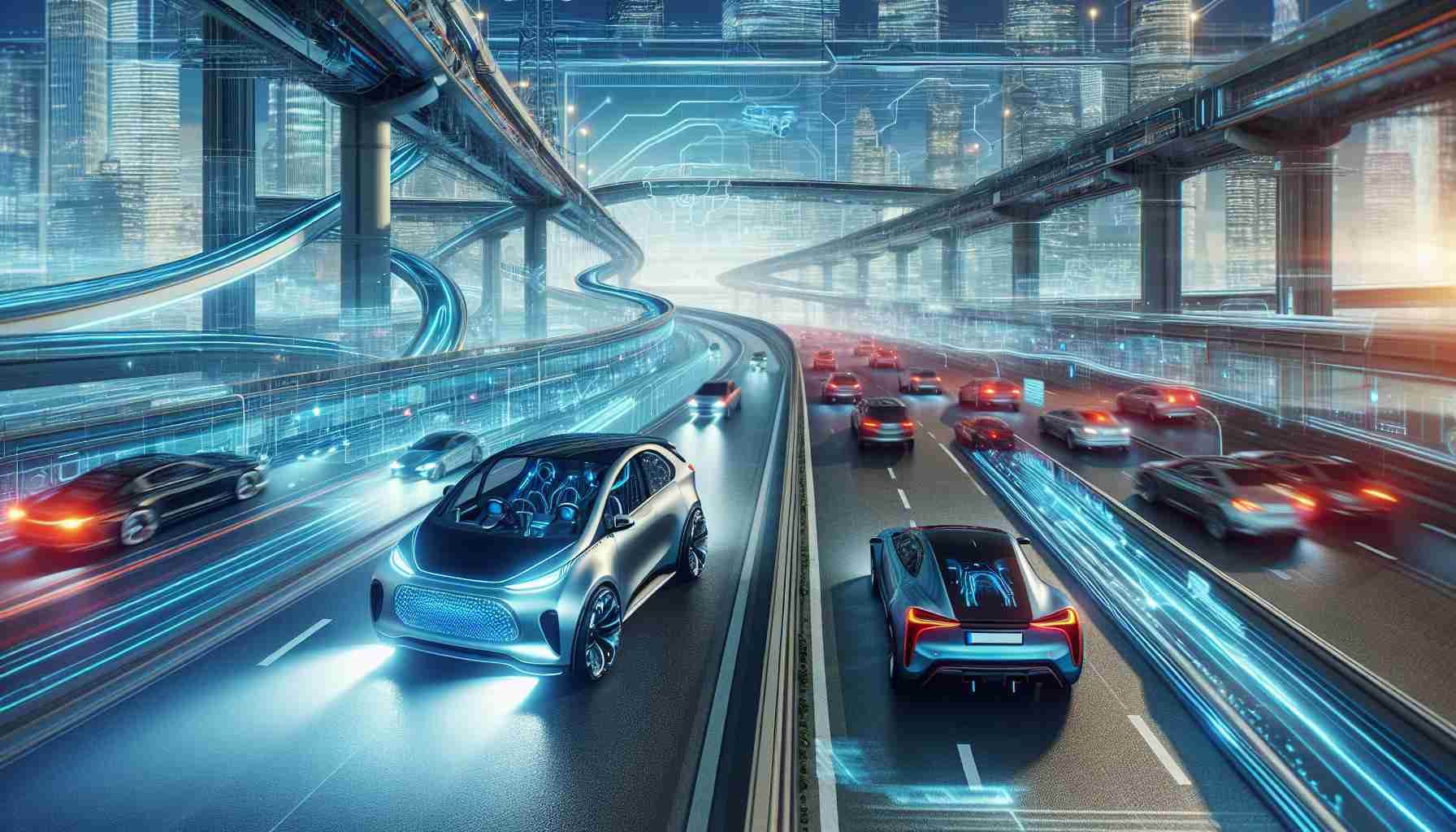“`html
- The automotive industry in 2024 is shifting towards greener technologies.
- Toyota leads global sales with 10.82 million vehicles, despite a decline in domestic sales.
- Toyota’s hybrid sales in North America increased by 21.1%, indicating a shift toward eco-friendly options.
- BYD has experienced a 41.3% rise in global sales, marking significant success with 4.27 million vehicles sold.
- BYD’s growth is driven by competitive pricing and technological advancements in electric vehicles.
- The rivalry between Toyota and BYD highlights the industry’s move towards hybrids and all-electric vehicles.
- The future of the automotive world promises more innovation in sustainable and electrifying mobility.
“`
In the dynamic landscape of 2024, the automotive industry is buzzing with a revolutionary shift toward greener, more sustainable technologies. Toyota, holding the crown as the world’s top-selling automaker, has cemented its dominance by selling an impressive 10.82 million vehicles. Despite a challenging year marked by a 13.8% drop in domestic sales due to a vehicle certification scandal, Toyota’s hybrid surge of 21.1% in North America paints a vibrant picture of evolving consumer preferences toward eco-friendly solutions.
Enter BYD, the electric vehicle (EV) titan from China. Surpassing automotive veterans like Honda and Nissan, BYD celebrated a thrilling 41.3% rise in global sales, achieving 4.27 million vehicles sold internationally. This success story is crafted from clever pricing and groundbreaking technological innovations, positioning BYD as a formidable force shaping the future of electric mobility.
As both companies forge ahead, they find themselves at the vanguard of a significant industry shift. Toyota, with popular models like the RAV4 and C-HR, highlights a world increasingly hungry for hybrids, while BYD’s dedication to all-electric vehicles underscores the unstoppable march toward electrification. This narrative of rivalry and innovation sets the stage for an ongoing battle that promises to redefine how we drive.
The coming years will witness these titans continuing to navigate a rapidly evolving market. As they expand their offerings and captivate eco-conscious consumers, the undeniable message emerges: the future of driving is greener and more electrifying than ever. Stay tuned; the road ahead in the automotive revolution is set to thrill!
The Green Revolution in the Automotive World: Who Leads and Who Follows?
Industry Forecast: Will Toyota or BYD Shape the Automotive Future?
1. How do the strategies of Toyota and BYD differ in embracing sustainability?
Toyota and BYD represent two distinct approaches to sustainability in the automotive industry. Toyota has championed hybrid technology, creating a balance between traditional internal combustion engines and electric power. With a steady increase in hybrid sales, especially in countries like the United States with a 21.1% surge, Toyota caters to consumers who are looking for eco-friendly solutions without completely abandoning the familiarity of gasoline vehicles. This is evident in their popular models like the RAV4 and C-HR, which offer both power and efficiency.
On the other hand, BYD stands out with its commitment to fully electric vehicles (EVs), capturing the future with impressive innovation and pricing strategies. Surpassing traditional automotive giants like Honda and Nissan, BYD has made significant strides with a 41.3% increase in global sales, demonstrating a global appetite for its electric offerings. This full-throttle approach to electrification positions BYD as not just a competitor, but a leader in the quest for cleaner transportation.
For more insights into Toyota and BYD’s strategies, visit Toyota and BYD.
2. What market trends indicate the continued rise of electric and hybrid cars?
The global automotive market is seeing a robust trend toward electrification driven by technological advancements and changing consumer preferences. Governments across the world are implementing stricter emission norms and offering incentives for purchasing eco-friendly vehicles, further fueling the demand for hybrids and EVs. Market analysis suggests that by 2030, EVs could capture up to 30% of total vehicle sales globally, a testament to the shifting dynamics in consumer tastes and regulatory landscapes.
In addition to policy changes, technological innovations such as improved battery life, shorter charging times, and the proliferation of charging infrastructure make the proposition of electric vehicles increasingly viable for the average consumer. Consequently, both Toyota with its hybrid systems and BYD with its all-electric lineup are strategically positioned to benefit from these trends.
3. Are there any significant limitations or challenges these companies face in the transition to greener technologies?
Despite their successes, Toyota and BYD face notable challenges. Toyota, while a leader in hybrids, must continue to innovate to keep pace with the regulatory push toward fully electric vehicles and adapt to the fast-evolving market demands. Additionally, overcoming the vehicle certification scandal—which has led to a 13.8% drop in domestic sales—is crucial for maintaining consumer trust and domestic market share.
BYD, while currently on a strong growth trajectory, must contend with the complications of scaling production to sustain its rapid sales growth. Furthermore, as the global market becomes more saturated with EV players including major automakers entering the space, BYD will need to differentiate its brand amidst stiff competition.
For detailed market forecasts and trends, consider visiting Bloomberg and Reuters for comprehensive analyses on the automotive industry’s trajectory.
Understanding these dynamics helps decode the future of driving, which promises to be not only greener but also filled with competitive innovation and exciting transformations.













